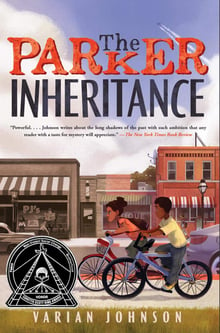blue blood
Other forms: blue bloods
A blue blood is an aristocrat. Blue bloods come from privileged, noble families that are wealthy and powerful.
The word blood has long referred to family ties: people you are related to share the same blood. One specific type of family is composed of blue bloods: members of the aristocracy. Blue bloods have high social status. Shakespearean plays about kings, queens, princes, princesses, and other nobles are all about blue bloods. In America, families like the Kennedys and Bushes qualify as blue bloods.
Definitions of blue blood
-
a member of the aristocracy
-
synonyms:
aristocrat, patrician
-
examples:
- show 48 examples...
- hide 48 examples...
-
Dido
(Roman mythology) a princess of Tyre who was the founder and queen of Carthage; Virgil tells of her suicide when she was abandoned by Aeneas
-
Sleeping Beauty
fairy story: princess under an evil spell who could be awakened only by a prince's kiss
-
Albert Francis Charles Augustus Emmanuel
prince consort of Queen Victoria of England (1819-1861)
-
Anne
Queen of England and Scotland and Ireland; daughter if James II and the last of the Stuart monarchs; in 1707 she was the last English ruler to exercise the royal veto over parliament (1665-1714)
-
Anne Boleyn
the second wife of Henry VIII and mother of Elizabeth I; was executed on a charge of adultery (1507-1536)
-
Duchess of Ferrara
Italian noblewoman and patron of the arts (1480-1519)
-
Catherine de Medicis
queen of France as the wife of Henry II and regent during the minority of her son Charles IX (1519-1589)
-
Prince Charles
the eldest son of Elizabeth II and heir to the English throne (born in 1948)
-
Cleopatra
beautiful and charismatic queen of Egypt; mistress of Julius Caesar and later of Mark Antony; killed herself to avoid capture by Octavian (69-30 BC)
-
First Marquess Cornwallis
commander of the British forces in the American War of Independence; was defeated by American and French troops at Yorktown (1738-1805)
-
Cyrus the Younger
Persian prince who was defeated in battle by his brother Artaxerxes II (424-401 BC)
-
Lady Diana Frances Spencer
English aristocrat who was the first wife of Prince Charles; her death in an automobile accident in Paris produced intense national mourning (1961-1997)
-
Duchesse de Valentinois
French noblewoman who was the mistress of Henry II; she had more influence over him than did his wife Catherine de Medicis (1499-1566)
-
Don Juan
a legendary Spanish nobleman and philanderer who became the hero of many poems and plays and operas
-
Black Prince
son of Edward III who defeated the French at Crecy and Poitiers in the Hundred Years' War (1330-1376)
-
Edward Antony Richard Louis
third son of Elizabeth II (born in 1964)
-
Eleanor of Aquitaine
queen of France as the wife of Louis VII; that marriage was annulled in 1152 and she then married Henry II and became Queen of England (1122-1204)
-
Elizabeth I
Queen of England from 1558 to 1603; daughter of Henry VIII and Anne Boleyn; she succeeded Mary I (who was a Catholic) and restored Protestantism to England; during her reign Mary Queen of Scots was executed and the Spanish Armada was defeated; her reign was marked by prosperity and literary genius (1533-1603)
-
Elizabeth II
daughter of George VI who became the Queen of England and Northern Ireland in 1952 on the death of her father (1926-)
-
Esther
(Old Testament) a beautiful Jewess chosen by the king of Persia to be his queen; she stopped a plot to massacre all the Jews in Persia (an event celebrated by Jews as the feast of Purim)
-
Francis Ferdinand
archduke of Austria and heir apparent to Francis Joseph I; his assassination at Sarajevo triggered the outbreak of World War I (1863-1914)
-
Frederick William
the Elector of Brandenburg who rebuilt his domain after its destruction during the Thirty Years' War (1620-1688)
-
Sir Geraint
(Arthurian legend) one of the knights of the Round Table
-
Lady Godiva
according to legend she rode naked through Coventry in order to persuade her husband not to tax the townspeople so heavily; the only person to look at her as she rode by was a man named Tom and Peeping Tom has become a synonym for voyeur (circa 1040-1080)
-
Lady Jane Grey
Queen of England for nine days in 1553; she was quickly replaced by Mary Tudor and beheaded for treason (1537-1554)
-
Lady Emma Hamilton
English beauty who was the mistress of Admiral Nelson (1765-1815)
-
Catherine Howard
Queen of England as the fifth wife of Henry VIII who was accused of adultery and executed (1520-1542)
-
Isabella the Catholic
the queen of Castile whose marriage to Ferdinand of Aragon in 1469 marked the beginning of the modern state of Spain; they instituted the Spanish Inquisition in 1478 and sponsored the voyages of Christopher Columbus in 1492 (1451-1504)
-
Ivan III Vasilievich
grand duke of Muscovy whose victories against the Tartars laid the basis for Russian unity (1440-1505)
-
Jezebel
wife of Ahab who was king of Israel; according to the Old Testament she was a cruel immoral queen who fostered the worship of Baal and tried to kill Elijah and other prophets of Israel (9th century BC)
-
Lydia Kamekeha Paki Liliuokalani
queen of the Hawaiian islands (1838-1917)
-
Marquise de Maintenon
French consort of Louis XIV who secretly married the king after the death of his first wife (1635-1719)
-
Marie Antoinette
queen of France (as wife of Louis XVI) who was unpopular; her extravagance and opposition to reform contributed to the overthrow of the monarchy; she was guillotined along with her husband (1755-1793)
-
Bloody Mary
daughter of Henry VIII and Catherine of Aragon who was Queen of England from 1553 to 1558; she was the wife of Philip II of Spain and when she restored Roman Catholicism to England many Protestants were burned at the stake as heretics (1516-1558)
-
Mary II
Queen of England and Scotland and Ireland; she was the eldest daughter of James II and ruled jointly with her husband William III (1662-1694)
-
Mary Queen of Scots
queen of Scotland from 1542 to 1567; as a Catholic she was forced to abdicate in favor of her son and fled to England where she was imprisoned by Elizabeth I; when Catholic supporters plotted to put her on the English throne she was tried and executed for sedition (1542-1587)
-
Francoise-Athenais de Rochechouart
French noblewoman who was mistress to Louis XIV until he became attracted to Madame de Maintenon (1641-1707)
-
Roger de Mortimer
English nobleman who deposed Edward II and was executed by Edward III (1287-1330)
-
Nefertiti
queen of Egypt and wife of Akhenaton (14th century BC)
-
Catherine Parr
Queen of England as the 6th wife of Henry VIII (1512-1548)
-
Duke of Edinburgh
Englishman and husband of Elizabeth II (born 1921)
-
Jeanne Antoinette Poisson
French noblewoman who was the lover of Louis XV, whose policies she influenced (1721-1764)
-
Prince Rupert
English leader (born in Germany) of the Royalist forces during the English Civil War (1619-1682)
-
Jane Seymour
Queen of England as the third wife of Henry VIII and mother of Edward VI (1509-1537)
-
Queen Victoria
queen of Great Britain and Ireland and empress of India from 1837 to 1901; the last Hanoverian ruler of England (1819-1901)
-
Nancy Witcher Astor
British politician (born in the United States) who was the first woman to sit in the British House of Commons (1879-1964)
-
Duke of Lancaster
the fourth son of Edward III who was the effective ruler of England during the close of his father's reign and during the minority of Richard II; his son was Henry Bolingbroke (1340-1399)
-
Earl of Leicester
an English nobleman who led the baronial rebellion against Henry III (1208-1265)
-
types:
- show 31 types...
- hide 31 types...
-
Bart, baronet
a member of the British order of honor; ranks below a baron but above a knight
-
brahman, brahmin
a member of a social and cultural elite (especially a descendant of an old New England family)
-
female aristocrat
a woman who is an aristocrat
-
Highness
(Your Highness or His Highness or Her Highness) title used to address a royal person
-
male aristocrat
a man who is an aristocrat
-
prince
a male member of a royal family other than the sovereign (especially the son of a sovereign)
-
princess
a female member of a royal family other than the queen (especially the daughter of a sovereign)
-
raja, rajah
a prince or king in India
-
ranee, rani
(the feminine of raja) a Hindu princess or the wife of a raja
-
archduchess
a wife or widow of an archduke or a princess of the former ruling house of Austria
-
archduke
a sovereign prince of the former ruling house of Austria
-
cavalier, chevalier
a gallant or courtly gentleman
-
crown prince
a male heir apparent to a throne
-
crown princess
a female heir apparent to a throne
-
czarina, czaritza, tsarina, tsaritsa, tzarina
the wife or widow of a czar
-
dauphin
formerly, the eldest son of the King of France and direct heir to the throne
-
grand duke
a prince who rules a territory
-
knight
originally a person of noble birth trained to arms and chivalry; today in Great Britain a person honored by the sovereign for personal merit
-
Lady, noblewoman, peeress
a woman of the peerage in Britain
-
Lord, noble, nobleman
a titled peer of the realm
-
maharaja, maharajah
a great raja; a Hindu prince or king in India ranking above a raja
-
maharanee, maharani
a great rani; a princess in India or the wife of a maharaja
-
Elector
any of the German princes who were entitled to vote in the election of new emperor of the Holy Roman Empire
-
prince consort
a prince who is the husband of a reigning female sovereign
-
princeling
a young prince
-
princeling
a petty or insignificant prince who rules some unimportant principality
-
Prince of Wales
the male heir apparent of the British sovereign
-
princess royal
the eldest daughter of a British sovereign
-
female monarch, queen, queen regnant
a female sovereign ruler
-
queen
the wife or widow of a king
-
Sir
a title used before the name of knight or baronet
-
type of:
-
leader
a person who rules or guides or inspires others
Cite this entry
Style:
MLA
- MLA
- APA
- Chicago
Copy citation
DISCLAIMER: These example sentences appear in various news sources and books to reflect the usage of the word ‘blue blood'.
Views expressed in the examples do not represent the opinion of Vocabulary.com or its editors.
Send us feedback
Word Family


